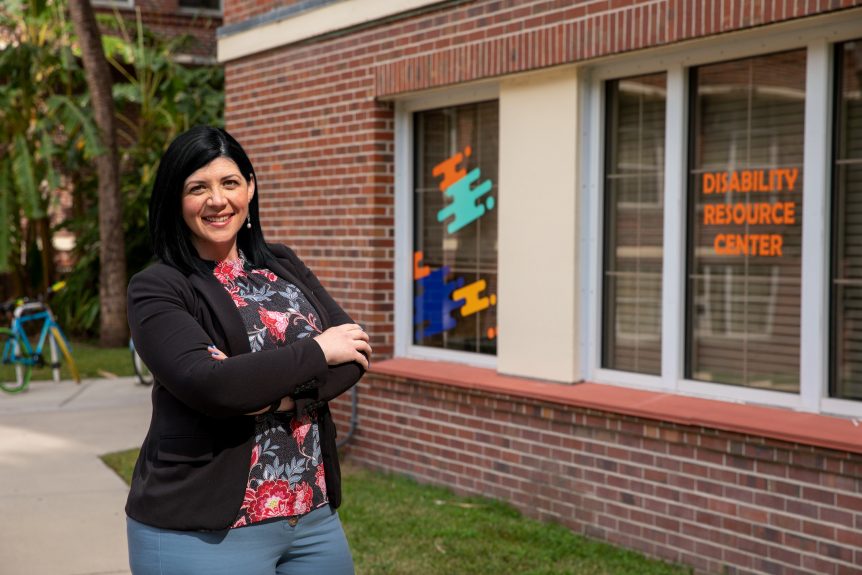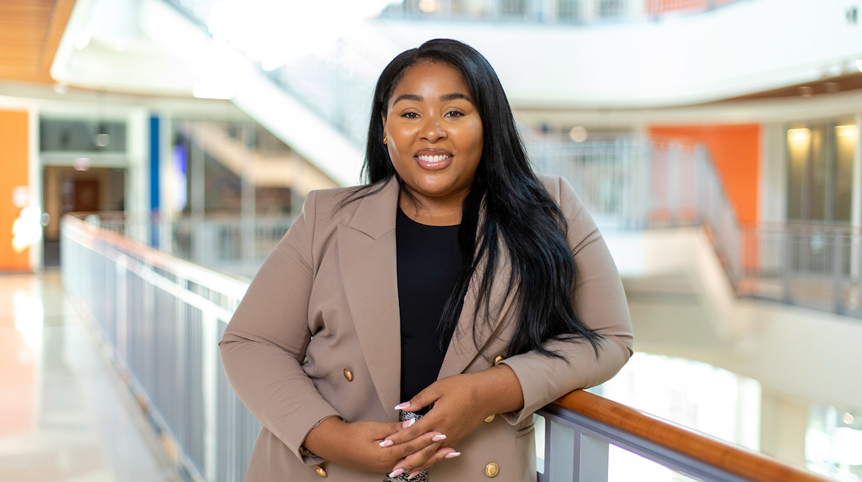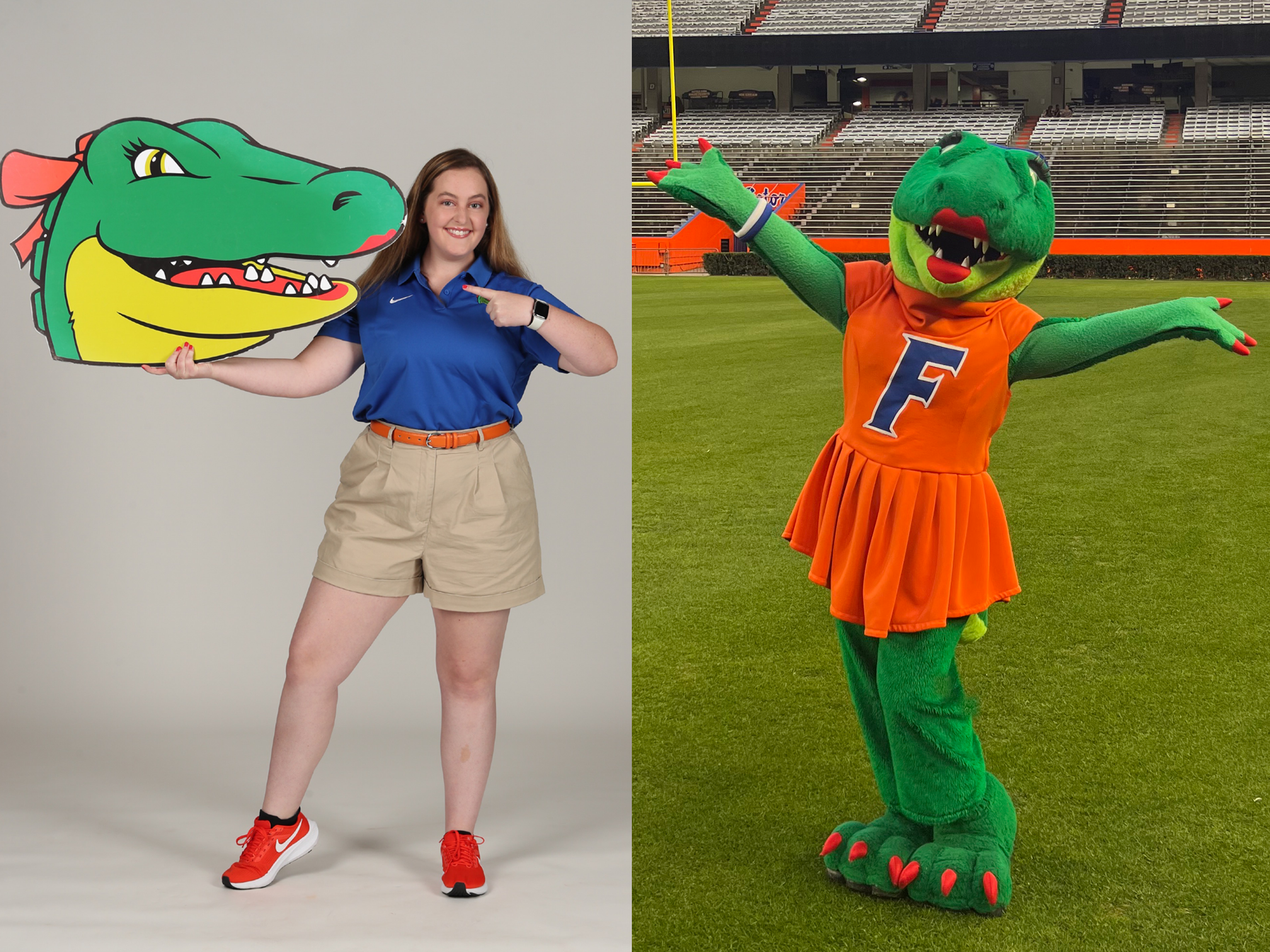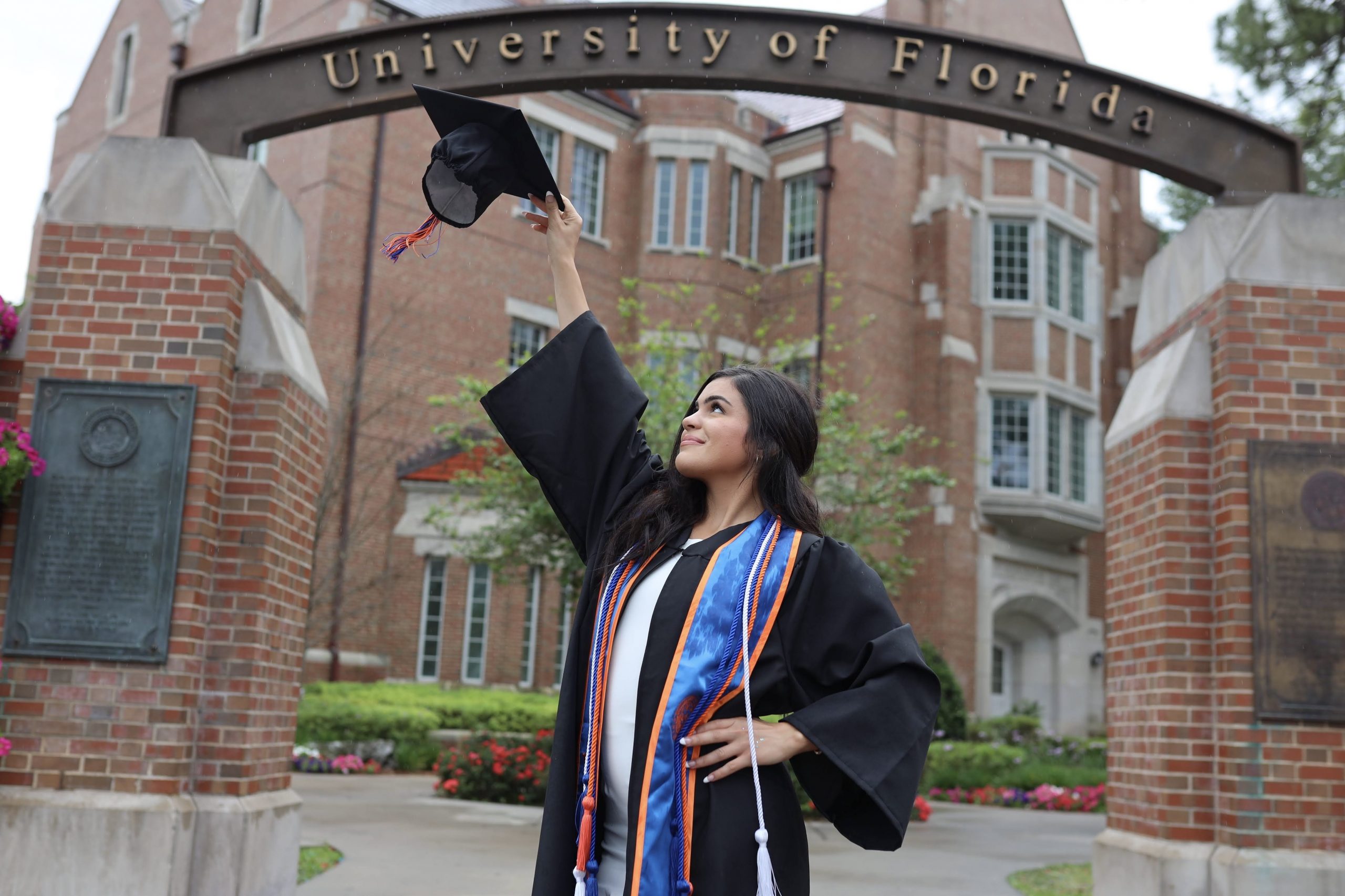The Disability Resource Center at the University of Florida is recruiting full-time American Sign Language interpreters. The new hires will interpret classes for students who are deaf and hard of hearing in addition to supporting campus events.
UF will be the only university in Florida with several full-time interpreters, setting a new precedent for campus accessibility standards, said Jenna Gonzalez, interim director of the Disability Resource Center.
“I want folks to know that if you really, truly want to be a Gator, you can come and get your access needs met,” Gonzalez said. “This is another way to show that we are living our values. And I think it will help students know to apply to UF because this is what we represent on this campus – pioneering access.”
The Disability Resource Center, often abbreviated DRC, was established in 1973 by a group of graduate students at UF who led the first accessibility assessment of buildings on campus. Today, DRC learning specialists and accommodations experts ensure more than 4,500 students with disabilities can comfortably access UF classes, events and buildings. UF was recently awarded top marks for wheelchair accessibility on campus.
Gonzalez said the number of students the DRC serves has more than doubled since 2016. In turn, the variety of student accommodations has steadily grown.
“I think this has been a long time coming,” said Amanda Jackson, assistant director for assistive technology services. “There hasn’t been this need because we didn’t have a student population to serve, but now we do and we are committed to ensuring they thrive at UF.”
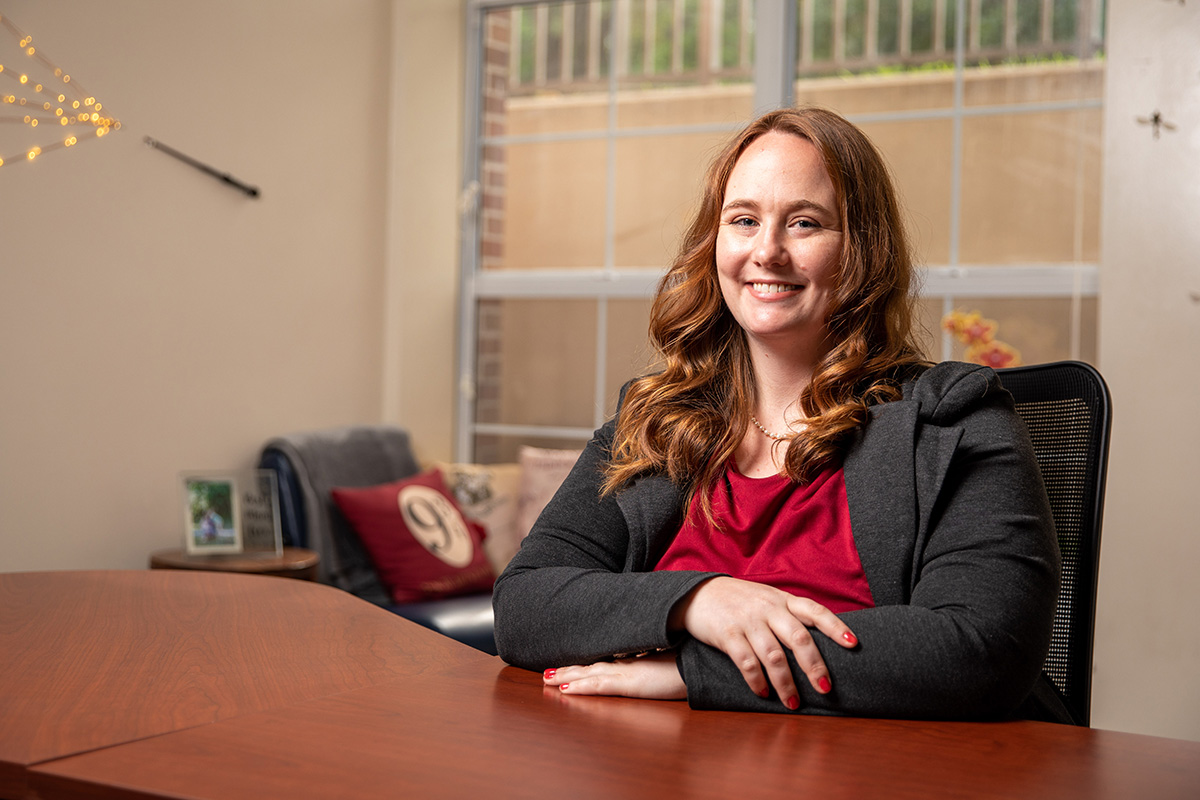
Amanda Jackson, pictured here, is the assistant director for assistive technology services. She said she hopes the interpreters will help students “that maybe never saw themselves here” see UF in a new light. “They deserve to be here.” UF Student Life photo by Christopher Gomez
Currently, students who are deaf or hard of hearing rely on her to contract with private agencies for sign language interpreters. Providing students the same interpreters throughout their time at UF enables them to build relationships with interpreters – and gives interpreters an opportunity to develop expertise translating highly technical language.
But Jackson can’t guarantee students will work with the same interpreters for the duration of their program. Moreover, interpreters with experience translating technical language typically commute from up to two hours away, which limits their availability for short-notice requests adds transportation expenses, she said.
The DRC has enlisted disability advocates, education specialists and Deaf culture scholars to recruit interpreters with experience signing complex language in classroom, laboratory and clinical settings. The new hires will also ensure students work one-on-one only with interpreters they’ve met before.
“These interpreters will get to know the faculty, the terminology and the personalities of our students in ways that contracted interpreters don’t have the opportunity to,” Jackson said. “The goal is for students to feel like they have people in their corner to provide those services consistently and provide them with the best level of service.”
Not a “one-size-fits-all” solution
Eric Shear, who is earning his master’s degree in chemical engineering from UF and is deaf, studies life support systems for space travel. Photos of Earth he saw in a coffee-table book sparked his childhood curiosity about the cosmos, he recalled.
“There’s no sound in space. I think I always found that so interesting because sound means nothing to me anyway but can mean so much to others,” he signed to an interpreter. “I’d be on an equal playing field.”
American Sign Language is Shear’s first language, and he has attended mainstream school, supported by either a real-time captioning service or interpreters, his entire life. He currently uses two interpreters in a four-hour laboratory course he takes.
Although he prefers live captioning provided by the DRC for most of his learning, Shear signed that full-time interpreters on campus will give him opportunities for meaningful involvement in student organizations.
“I’m looking forward to new staff interpreters being hired. I think that will give me more options and more opportunities,” he signed. “It’ll make it more possible for me to truly communicate with other peers, especially if I’m able to get interpreters that are familiar with science terminology and concepts.”
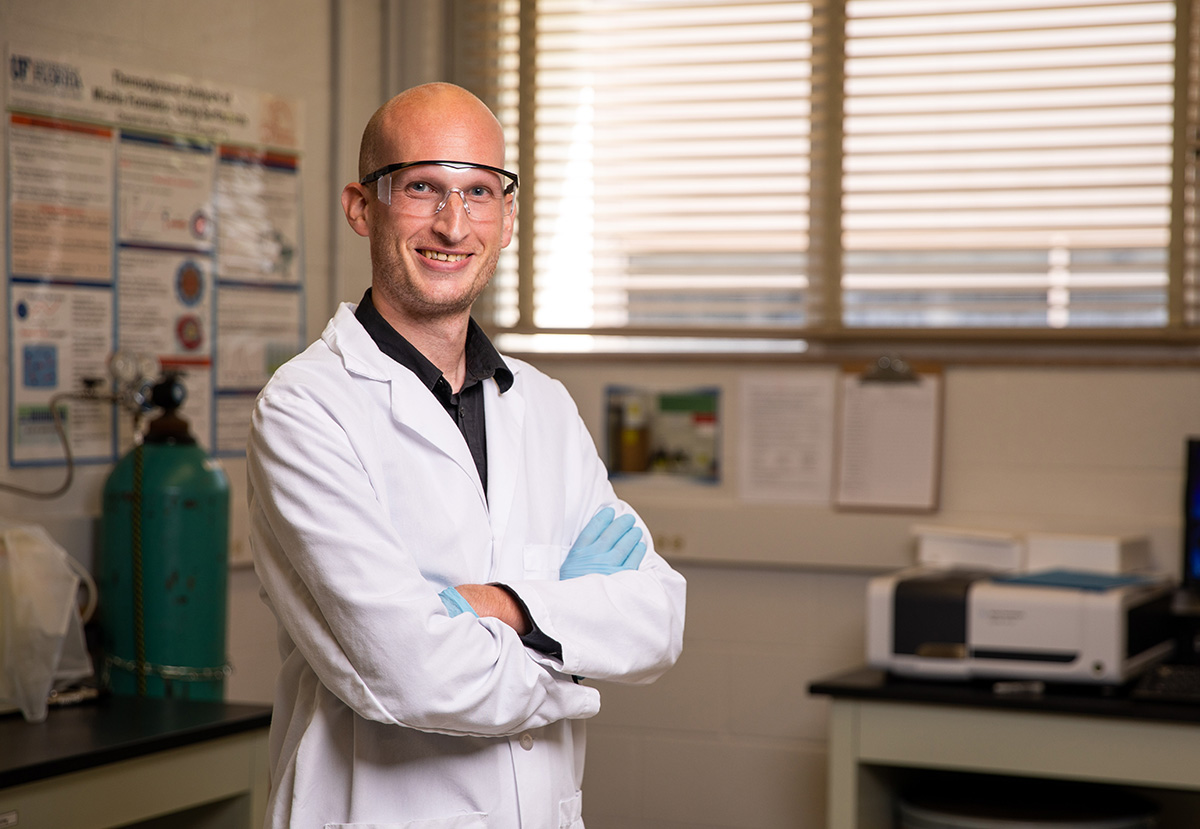
Eric Shear, pictured here, is earning his master’s degree in chemical engineering. He said experience interpreting scientific language is a must for the new staff. UF Student Life photo by Christopher Gomez
Lindsi Baugher, a first-year student majoring in civil engineering who is deaf, also uses live captioning for most of her courses. She plans to request interpreters for large lecture courses with challenging material.
Baugher said that, in the past, a shortage of interpreters in Central Florida has led her to ration how often she requests them. She has a cochlear implant, which detects sounds and converts them into electrical impulses the brain can interpret.
“I had a tendency to let the other students who need interpreters more than me use the resource,” she said. “Everyone should have equal access, and I’m excited to have interpreters here.”
Shear, also a mentor for the Florida School for the Deaf and Blind in St. Augustine, signed that how students who are deaf or hard of hearing will use the new interpreters depends on their individual needs and learning preferences.
“I don’t know that there’s a one-size-fits-all solution,” Shear signed. “Different people have different needs, and so different accommodations are better for different people. And I think the university is aware of that.”
Shear added that the employment gap between deaf and hearing people – 22% according to the National Deaf Center in 2017 – reflects the barriers people who are deaf face in educational and training settings.
“I believe deaf people can do anything except hear,” Shear signed. “But so many people don’t have that attitude about deaf people.”
The open positions will remain posted until Sunday, April 11 at 11:55 p.m.
Learn more about the Disability Resource Center at UF.
Sources: Jenna Gonzalez, jgonzalez@ufsa.ufl.edu;
Amanda Jackson, ajackson@ufsa.ufl.edu

